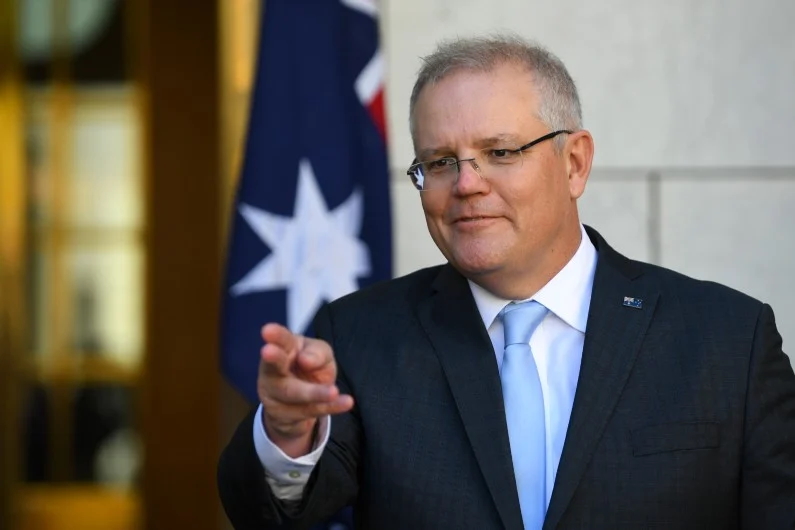Modern prime ministers have typically left parliament soon after defeat. So why doesn't Scott Morrison?
- Written by Paul Strangio, Professor of Politics, Monash University

With each passing month, Scott Morrison is developing into a post-prime-ministership peculiarity. Well over a year since voters cast him from power, he remains limpet-like in the House of Representatives, defying speculation that he is ready to quit parliament and trigger a byelection in his New South Wales seat of Cook. Hanging around on the backbench is generally not the way of ousted national leaders in the modern political era.
It is true that in bygone times former prime ministers did not scurry to leave parliament after losing office. The most spectacular example is Australia’s leader during the first world war, William Morris Hughes. Bumped from office in 1923, the “Little Digger”, as he was known, remained in the House for another three decades, relentlessly scheming for power. Only death in 1952 brought closure to his parliamentary career.
Since the 1980s, however, the habit of former PMs has been to hastily abandon politics once the mantle of office has slipped their grasp. Malcolm Fraser established this modern pattern, triggering a byelection in his seat of Wannon two months after his Coalition government was defeated by the Bob Hawke-led Labor Party in March 1983.
From that time there have been few exceptions to this norm. Deposed from office by Paul Keating in December 1991, Hawke was out of the parliament by February 1992, with his seat of Wills won by the independent, Phil Cleary. Keating, too, followed the trend. After his Labor government lost power to the John Howard-led Coalition in March 1996, Keating resigned from the House the following month.
For Howard, the decision was taken out of his hands, as voters not only finished his prime ministership in November 2007 but terminated his more than three decades as the member for Bennelong.
Howard’s slayer, Kevin Rudd, did buck the trend after he was overthrown by caucus colleagues in June 2010. Convinced of the righteousness of his resurrection and thirsting to avenge his usurper, Julia Gillard, he stayed on for another parliamentary term, wresting the prime ministership back in June 2013. However, when electors put an end to his second government three months later, Rudd swiftly exited politics. Meanwhile, Gillard had resigned as the member for Lalor only weeks after being dethroned by Rudd.
Read more: Author, ambassador, commentator, critic? It's not always easy to earn a crust as a former PM[1]
Prone to eccentricity, Tony Abbott is the clearest exception to the rule of modern ex-PMs not dallying in parliament once their reign is over. Deposed by Malcolm Turnbull in September 2015, less than two years after becoming prime minister, Abbott lingered mostly aimlessly on the backbench for the rest of that term and the next. Recontesting his seat of Warringah again at the May 2019 election, he lost to the independent, Zali Steggall.
In contrast to Abbott, Turnbull left parliament with almost unseemly haste once he was unseated from power. After being dumped from the leadership in favour of Morrison in August 2018, he tendered his resignation as the member for Wentworth within a week. In the ensuing byelection, his seat too went to an independent, Kerryn Phelps.
How do we explain the modern pattern of former prime ministers sprinting to the exit door once their time in office is over?
In earlier times, there was a role for ex-leaders as elder statesmen in parliament. The best example is the Great Depression-era PM, Labor’s James Scullin. Despite failing health, he remained in the House for nearly another two decades and served as a trusted confidant to John Curtin throughout the harrying days of the second world war.
Modern former prime ministers can be a source of counsel to their successors, offering advice both welcome and unwelcome. But there is no appetite among colleagues for them to hang around in parliament fulfilling that function. The media are quick to portray them as an unhelpful distraction or curiosity, while opponents point-score off them. Better they are out of the way.
Another reason modern former leaders are impatient to move on is that, with extended lifespans and expanded opportunities post-office (for example, book-writing deals, lecture circuits, ambassadorships, business ventures, NGO and think-tank appointments), ex-PMs can now enjoy a second wind once out of parliament in a way that was not so open to earlier predecessors. Politics is now less of a lifetime vocation.
Why, then, is Morrison clinging on? We can discount his declarations that he is relishing being the member for Cook. Being a humble backbencher visits daily humiliation on him. Indeed, Morrison’s post-prime ministership has been most notable for his reputation being tarnished by revelations of his bizarre commandeering of several portfolios while PM, and by the adverse findings against him by the Robodebt Royal Commission.
These scandals have undoubtedly complicated an early departure for Morrison because, in going, he would be seen to be retreating in disgrace. He needs time and space from the scandals for the semblance of a dignified escape. The opportunities Morrison had hoped for following politics have potentially also thinned because of his sullied reputation.
Finally, there is the political calculation surrounding his exit for his party. Stay or go, Morrison is a headache for Opposition Leader Peter Dutton. As long as the scandal-ravaged Morrison hangs around, he is damaging the Liberal brand.
Yet a byelection in his electorate is also unwelcome. Though Cook is very safe on paper, the history of the seats of three former PMs going to independents over the past 30 years is intriguing and not to be lightly dismissed.

















